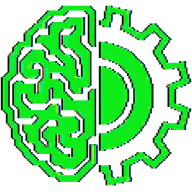Practical Polymathy: Beyond Domains and Definitions#
This video explores the concept of polymathy, critiquing the traditional, hindsight-based understanding and proposing a “practical” approach focused on mission-oriented execution rather than domain-specific learning. The speaker argues that true polymathy isn’t about having learned many named things, but about applying generic skills and orchestrating resources to achieve objectives.
Understanding Traditional Polymathy vs. Practical Polymathy#
- [00:00:14] Polymathy is etymologically defined as having learned many things, with variations between a shallow dilettante and a deep contributor. The term holds romantic appeal, but its practical interpretation is often flawed.
- [00:01:17] Natural exploration in youth leads to early generalism, followed by societal pressure towards specialization. This creates a tension between being a generalist (polymath) and a specialist.
- [00:02:23] While specialization (being a “master of one”) is widely promoted, polymathy is often underrepresented or viewed negatively as distraction or dabbling (“jack of all, master of none,” though the full adage suggests being “still better than a master of one”).
- [00:03:31] Polymaths like Da Vinci are often presented in hindsight based on their contributions across domains, focusing on the awe rather than the messy, iterative process. The speaker hypothesizes that their approach was more about fundamental observation and iterative application, less about explicit domain knowledge.
- [00:07:28] The effort associated with polymathy is often modeled as a prerequisite, which the speaker contests. He hypothesizes that successful polymaths do not care about explicit domain boundaries when working, focusing instead on fundamental aspects like observations, inputs, outputs, and processes.
- [00:09:00] The speaker redefines practical polymathy not as “having learned many things,” but as the ability to apply generic processes and abstractions in an applied manner – essentially, applied observation and strategic resource orchestration.
The Shift to a Mission-Oriented Mindset#
- [00:09:45] The “many” aspect of polymathy is something attributed in hindsight. Instead of a domain-oriented mindset (studying foundations of named domains), a mission-oriented mindset is more effective. This involves studying anything and everything necessary to complete a specific objective.
- [00:11:00] Practical polymathy is about focusing intensely on the mission, doing whatever it takes. It means not self-discretizing into careers or scopes but understanding the problem, available tools, their interactions, and orchestrating resources strategically towards the mission.
- [00:11:40] The societal push towards specialization and domain focus is partly driven by the industry’s need for fungible (replaceable) talent, which is good for organizational continuity but detrimental to individual uniqueness and value creation beyond a specific function.
- [00:13:52] The mission-oriented mindset fosters generic orchestration ability, going beyond predefined domains. Domains become useful for naming, optimizing, and organizing knowledge after the fact (in hindsight), not for guiding the initial execution.
- [00:15:10] This mindset involves understanding the current state, defining the desired state (mission), knowing available tools, their resource consumption, and orchestrating tool calls to move step-by-step towards the desired state (likened to the “controller pattern” in computer science).
Implications for Education#
- [00:20:31] The traditional education system, which often begins with definition and “name-dropping” domains (physics, chemistry, etc.), hinders the development of practical polymathic skills.
- [00:21:55] A better approach, dubbed domain discovery, involves giving students a mission, providing fundamental tools (basal abstractions) without explicit domain names, letting them experiment and orchestrate these tools to achieve the mission, describe their process using fundamental terms, and only then introducing the formal names of the domains they implicitly worked within. This fosters indispensable strategic and observational thinking skills.
Conclusion#
- [00:23:18] Practical polymathy involves separating the process of execution (mission-focused orchestration) from the process of hindsight naming and optimization. The word “polymathy” itself is seen as more applicable to describing the outcome in hindsight than the active, mission-driven process itself.
- [00:25:30] The channel’s mission includes redefining societal systems like education by promoting these ideas of fundamental tooling, mission-oriented learning, and domain discovery.
The speaker concludes by emphasizing that practical polymathy is about the dynamic process of achieving a mission through generic skills and orchestration, a process that transcends predefined domain boundaries.
